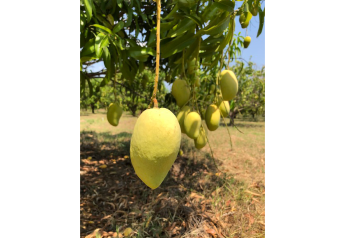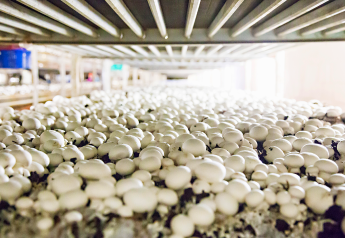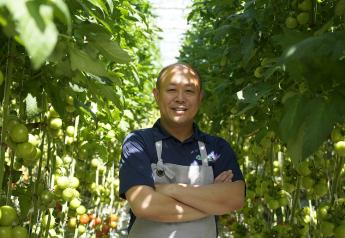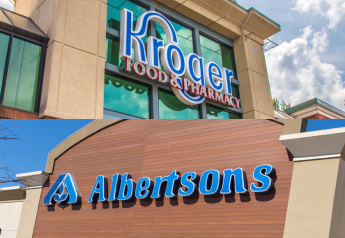Why the fresh produce industry is ripe for AI-powered carbon reduction

Once a lofty aspiration for only the most forward-thinking companies, carbon reduction is now an urgent priority for the produce industry. And while fruit and vegetables may not have the largest carbon footprint on the production side, the industry does contribute emissions through transportation and unacceptably high rates of waste.
Naturally, Earth Day is a good time to reflect on the progress that has been made and the work that needs to be done. Looking at 2023 and beyond, the outlook is challenging, but with promising developments that bode well for the future.
In particular, artificial intelligence holds the promise of optimizing supply chains, reducing waste and enabling the industry to effectively balance ever-increasing demand against the need to significantly reduce emissions.
Emissions all along the supply chain: Why food production is at the forefront of carbon reduction
Production emissions for fruit and vegetables are lower than other foods, such as meat. But transportation accounts for around 20% of the industry’s emissions as a whole, much of which comes from the need for refrigeration.
Temperature control throughout the supply chain poses a difficult challenge for the fresh produce industry. Refrigeration relies on high-emission vehicles and infrastructure, but it’s very difficult to escape this necessity. Failure to maintain appropriate temperatures for different types of fruits and vegetables leads to spoliation or premature ripening, adding to the estimated $900 billion worth of produce that ends up on the waste pile annually.
Meeting ever-increasing demand without ramping up carbon emissions is a formidable challenge, and there are indications that the industry at large is taking it seriously.
Emitting less while doing more: How the industry is adapting
With more produce on the move, growers, wholesalers and retailers face growing pressure to mitigate emissions at each step in the value chain. This is driving a number of healthy changes to the industry at large.
The increasing uptake of sustainable packaging by major retailers is an encouraging sign, as is the integration of sustainable technologies in production and transportation. All of this contributes to a decrease in the overall carbon footprint of fresh produce from farm to table.
Perhaps even more importantly, we are seeing a renewed emphasis on local and regional food trade. Reducing reliance on imports and strengthening local and regional food systems will go a long way towards reducing emissions related to shipping and air transport.
Taken together, these trends are moving the produce industry towards a greener, more sustainable future. But with around 20% of food waste sitting at the grower segment, there is an urgent need to support producers to reduce loss even long before packaging and transport take place.
Automated quality control: The role of AI in reducing waste
Energy-efficient transport and recycled packaging, while essential, are not enough to make a dent in the 20% to 40% of fruit and vegetables that never even reach consumers. Producers in particular need effective inventory management systems and real-time monitoring of produce.
This is the need that AI and computer vision are now well placed to meet. By automating the quality control process, these technologies can accurately evaluate produce at each touchpoint along the supply chain and separate what is not fit for consumption. These technologies replace the guesswork and inaccuracy of manual quality control with real-time, data-driven decision-making, reducing the likelihood of overproduction, quality mismatch and subsequent waste.
Carbon reduction: Where environmental imperatives and customer demand meet
Reducing the carbon footprint of the fruit and vegetable industry is about more than environmental compliance; it’s crucial for the industry's future viability. Consumers are becoming more aware of the environmental impact of the produce they buy and consume. The demand for sustainable solutions is therefore as much “bottom up” as it is “top down.”
To stay competitive — and stay on track with sustainability goals — all parties involved in the fresh produce supply chain need to pull together. It’s only through close cooperation and transparency that the industry as a whole can continue to meet growing demand without also growing an already hefty carbon footprint. We’re confident that the latest advances in AI are the just-in-time solution that’s needed to build a more fruitful and less wasteful future for fresh produce.
Elad Mardix is the CEO and co-founder of Clarifruit, an AI-powered quality control (QC) software for the fresh produce industry. Prior to co-founding Clarifruit in 2018, he had a 12-year career working for J.P. Morgan in both New York and Hong Kong, where he ran J.P. Morgan’s Asia Technology banking franchise. As a senior tech banker, he partnered with tech entrepreneurs. Mardix holds a bachelor’s degree in economics and accounting from Bar-Ilan University in Israel and an MBA from the University of Virginia’s Darden School of Business.







